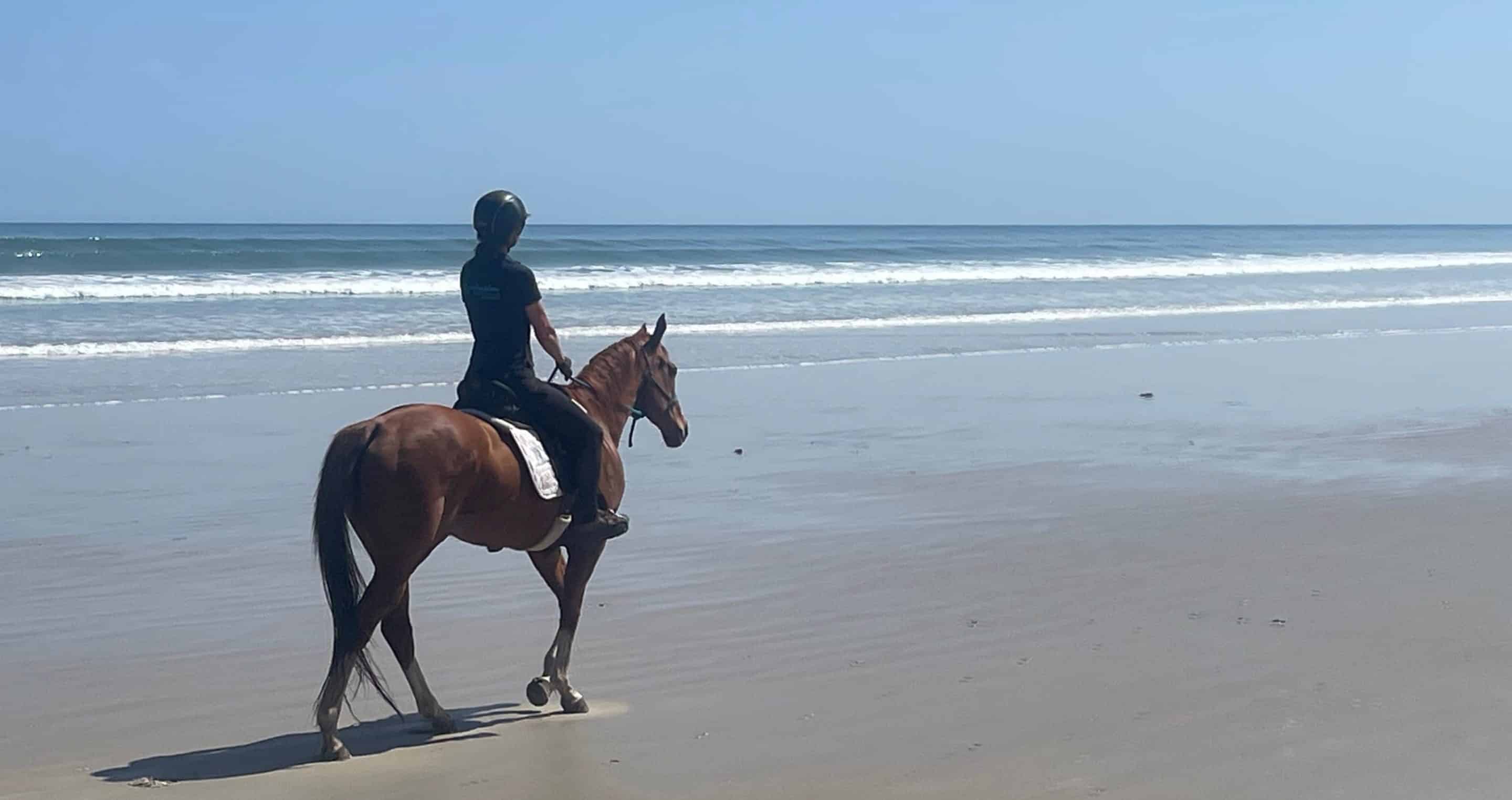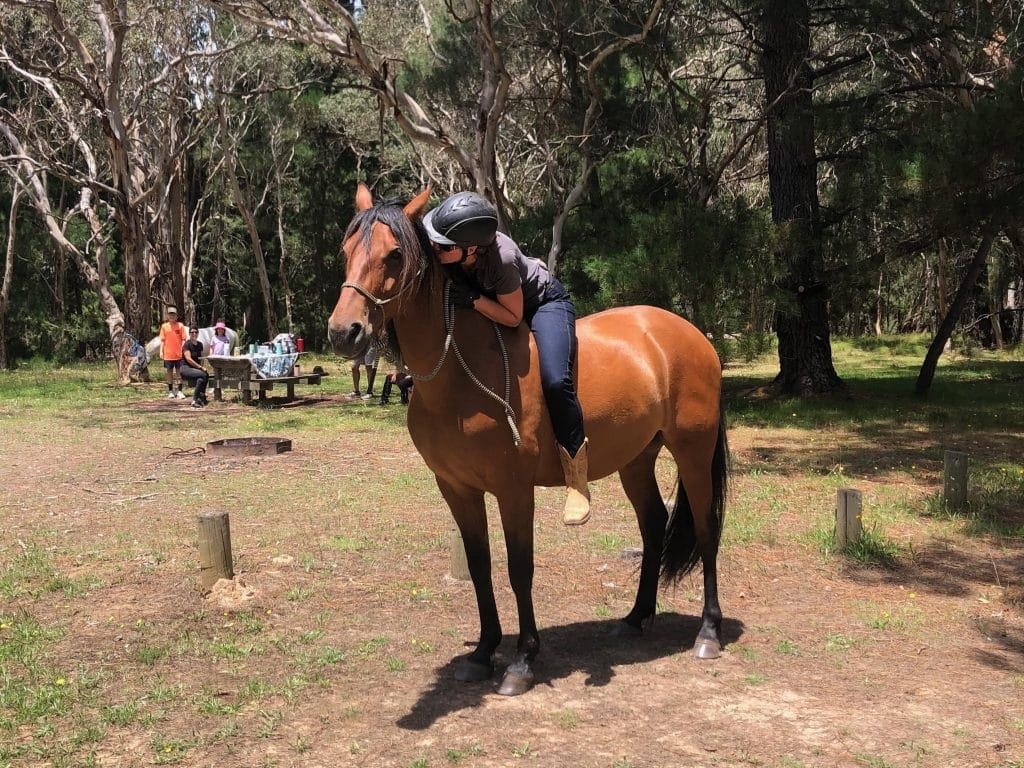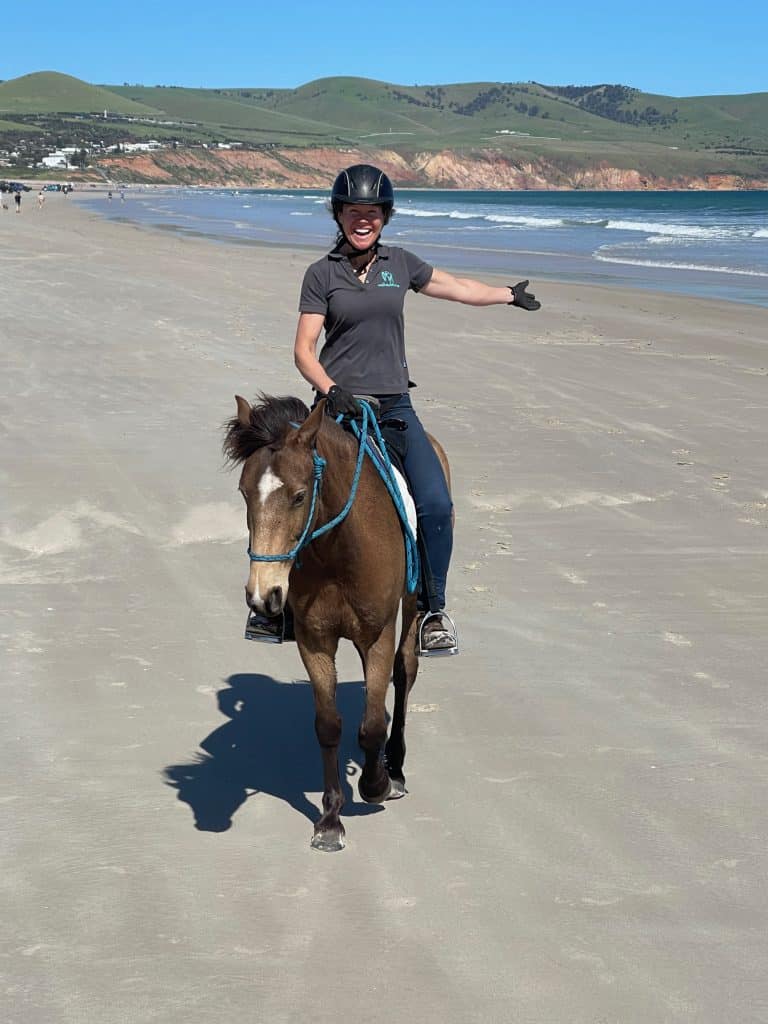OUR second BIRTHDAY gift to you
Save $55 with a complimentary photo collection for experiences booked by Nov 1, 2024
Subscribe here for our birthday coupon, exclusive invitations and Updates from Mel on our progress towards Sublime Intervention

Oh if I had a dollar for every enquiry I receive from people wanting to go horse riding! Initially, giving my standard response “Thank you… our horses are offered as walking partners only, that is, on foot” I was eager to share with these budding riders the value of the WalkSublime experience from a rider safety perspective. However I quickly learned to save my energy, for people of course only hear what they want to hear.
Common words (excuses?) used by many humans when talking about horses include “flighty”, “erratic”, “spooked” and “unpredictable”. Here are two scenarios for your consideration…
Putting ourselves in the horse’s shoes for a moment – imagine you had a human climb up on your back, in itself a threatening position a predatory animal would aim for, and assume control of you without taking time to introduce themselves first, to look you in the eye, ask how you’re feeling that day, actually listen to your response and indicate their acknowledgement of your feelings. The rider doesn’t talk to you once they’re up above you, doesn’t check in with you or offer you encouragement as the ride progresses. You don’t know who they are, can only see them in your peripheral vision and wonder if they’re actually aware of what’s going on around you both.
If something frightened you (the horse) while under your rider’s ‘control’, would you trust in their ability to support you and help you through it? Would you rely on their leadership to keep you both safe? Or would you act on your hardwired instinct as an animal that others prey on and move immediately in whatever direction’s available to get yourself out of perceived harm’s way?
Showing no thought for your rider as they’ve shown no thought for you. In fact they’ve given you the distinct feeling they’re looking out for themselves only. And so when something frightening happens you act in the interest of self-preservation and run away fast. You, the horse, don’t stop to think first.
The entitled rider has no chance as they learn the hard way – they were never in control of the horse.
We cannot control another independent, sentient being.We can attempt to influence our horses through earning their respect.
We are only ever able to CONTROL OURSELVES.

This scenario describes me as a participant in commercial horse trekking adventures and trail riding on private property for thirty years. I had many spectacular falls and at the time, put these down to being part and parcel of the risks involved with riding horses, just as the mandatory insurance waiver forms now state. If anybody suggested back then I take time to learn how to read a horse, to let him or her get to know me before I assumed they would happily take me for a ride, it went in one ear and out the other. Not once did I seek out knowledge. Look for an explanation. Try to work out how to become better for myself and for the horses. I just accepted if you ride, sooner or later you fall.
Until, in my 40’s as a first-time horse owner, I sought out a professional trainer to teach me how to train my young horses. With new understanding and knowledge came the uncomfortable realisation I had actually been a passenger for all those years, not a rider. Therefore how incredibly lucky I was not to have suffered permanent injury while doing what I loved, or worse, to have put a horse at risk.
Now put yourself back in the horse’s shoes and contrast this to… Meeting a human for the first time in a non-threatening way, alongside you on the ground. Eye-to-eye. This human takes time to say hello and get to know you, communicating with you through their voice, presence and touch, acknowledging your feelings, showing you they’re a fair and present leader. Letting you know they feel privileged to be here with you. That they see you for the magnificent, independent being you are, capable of making your own decisions and managing your emotions with strong leadership.
In the case you come across something unexpected during your ride, say a mob of grazing kangaroos appear next to the trail, the first thing you, the horse, feels is your rider above – has she suddenly tensed in the saddle? Has her heart rate spiked? Has she made a sudden loud noise/gasp? Or is she calm, in control of herself, reassuring me everything’s OK?
In this scenario your rider is present and prepared so she notices you’re feeling uneasy. She tells you you’re doing well and there’s nothing to worry about, maybe even has a little laugh with you! In many cases you, the horse, may not react at all. If you do react, it’s likely to be at a lower level of intensity than in scenario 1.
The grateful rider has significantly increased their chances of staying in the saddle as horse and rider are a team. Rider earns the right to influence the horse’s mind and behaviour.
Horse’s calm responses in turn influence the rider’s confidence in an upward spiral. The pair look out for each other.
Horse and rider are IN SYNC.

Our mindset determines what we choose to do before we hop on a horse and importantly, how we behave during our ride.
This in turn has a huge influence on how the ride goes. Whether you and your horse return home safely that day is in your hands. You are ultimately accountable.
If you value yourself as a strong leader, you put in the effort and set your intentions from the start. In my lived experience, this is what saves you and your horse when the proverbial hits the fan out on the trail.
–Mel McLaren, Founder
WalkSublime | Walking with Horses in nature™